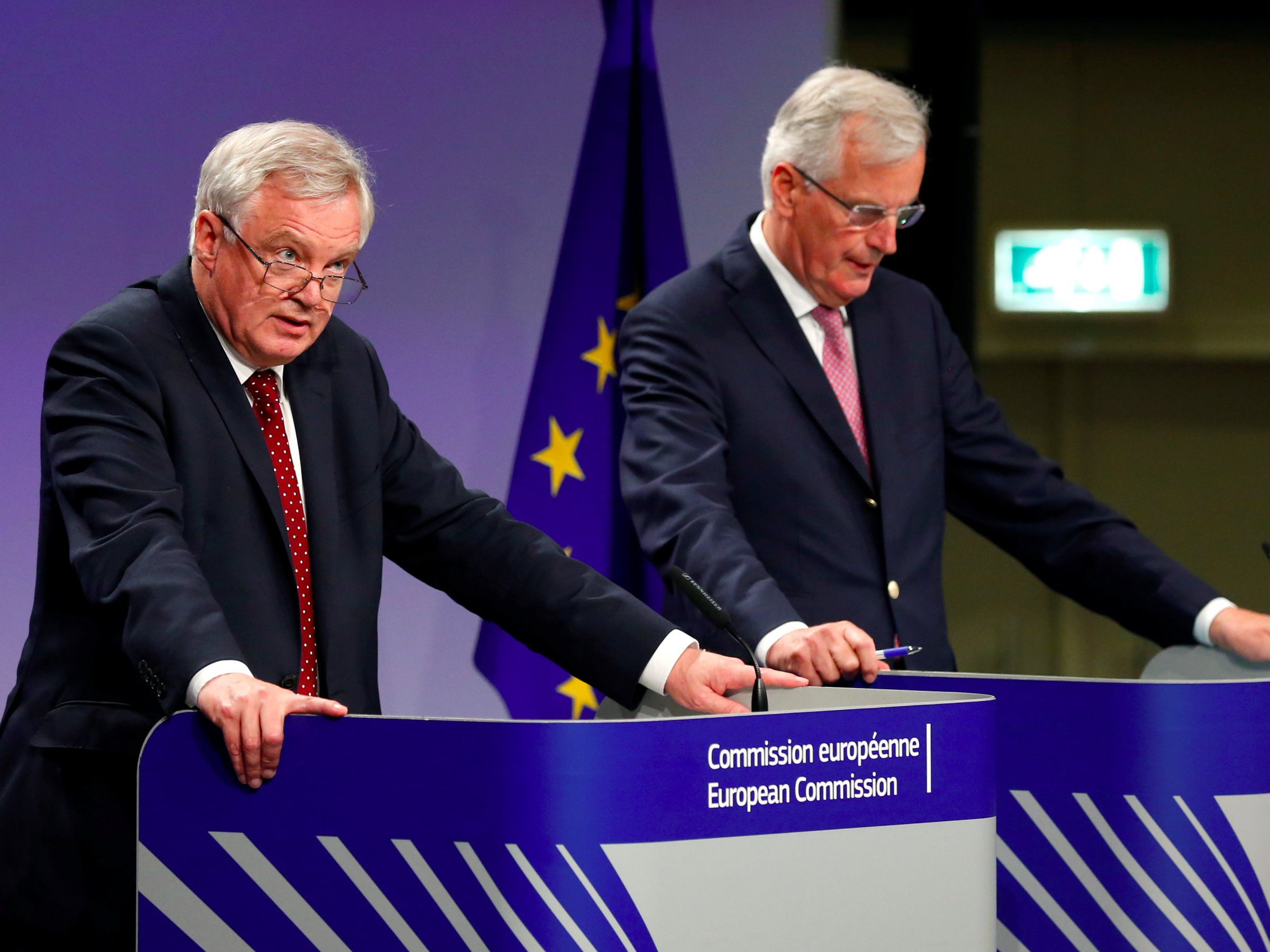 Britain’s Secretary of State for Exiting the European Union David Davis and European Union’s chief Brexit negotiator Michel Barnier hold a joint news conference after the round of Brexit talks in Brussels, Belgium July 20, 2017.Reuters/Francois Lenoir
Britain’s Secretary of State for Exiting the European Union David Davis and European Union’s chief Brexit negotiator Michel Barnier hold a joint news conference after the round of Brexit talks in Brussels, Belgium July 20, 2017.Reuters/Francois Lenoir
LONDON — The pound will remain weak until the UK stops negotiating “with itself” and begins a “meaningful dialogue” with the European Union, according to analysts at Japanese banking giant Nomura.
Nomura’s Jordan Rochester said that, in months gone by, news of the UK’s Brexit position – which is to leave the customs union but seek to negotiate a totally “new” customs relationship which is as “frictionless” as possible — would have seen Sterling rise against other currencies.
But that did not happen, and as of around 8.30 a.m. BST, sterling is little moved, dropping around 0.2% against the dollar to trade at $1.2940, as the chart below illustrates:
 Markets Insider
Markets Insider
Here’s Rochester on the reasons for that lack of a rally (emphasis ours):
“The reason why GBP may not have rallied is we have to remember a) the majority of the UK exports are in services which this does not address and that b) that for the most part, the UK continues to negotiate with itself rather than any meaningful dialogue with the EU thus far.
“The EU have consistently said that no future talks would start until the exit arrangements are made clearer. Something that he is also reported to suggest could be delayed past the soft deadline of October if the current pace of negotiations continues as they are.”
Instead, Sterling’s movements are currently much more reliant on economic data and how markets perceive it.
“The past few months have seen post-Brexit data euphoria reverse course, and the declining negative real wage consumption squeeze is now taking hold,” Rochester wrote on Monday.
“Market economists have been expecting this impact from the result of the referendum for over a year now, and the path of data surprises so far vindicates their view. Inflation is mostly owing to currency moves rather than a growing underlying demand, growth is faltering,” he added.
Nomura’s analysis of sterling comes just a few days after analysts at Morgan Stanley forecast that the euro will be worth more than Britain’s currency by the end of the first quarter of 2018.
In the bank’s FX Overview paper at the end of last week, a team led by strategist Hans W. Redeker said that a combination of a stronger euro and a weakening pound will combine to make the euro more valuable than the pound for the first time in its history, and make it — in terms of pure value — the strongest major currency on the planet.













